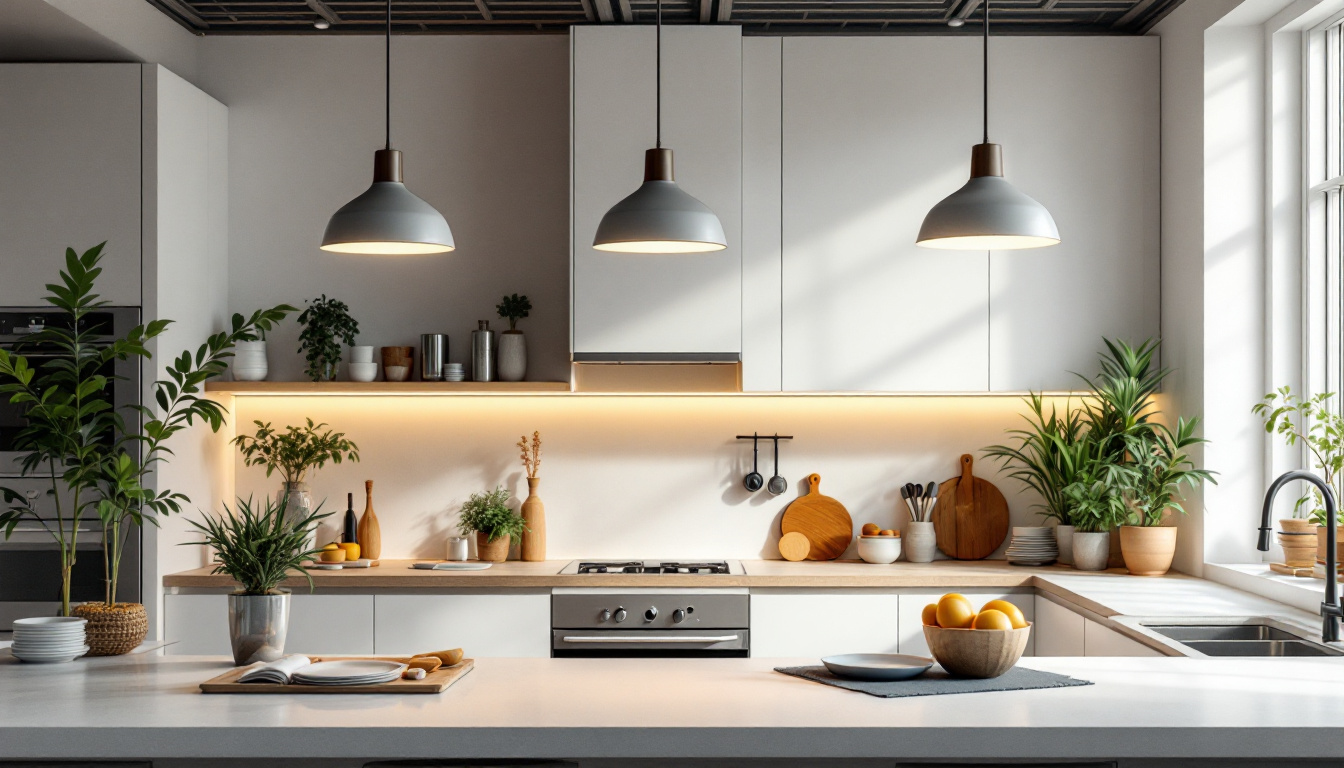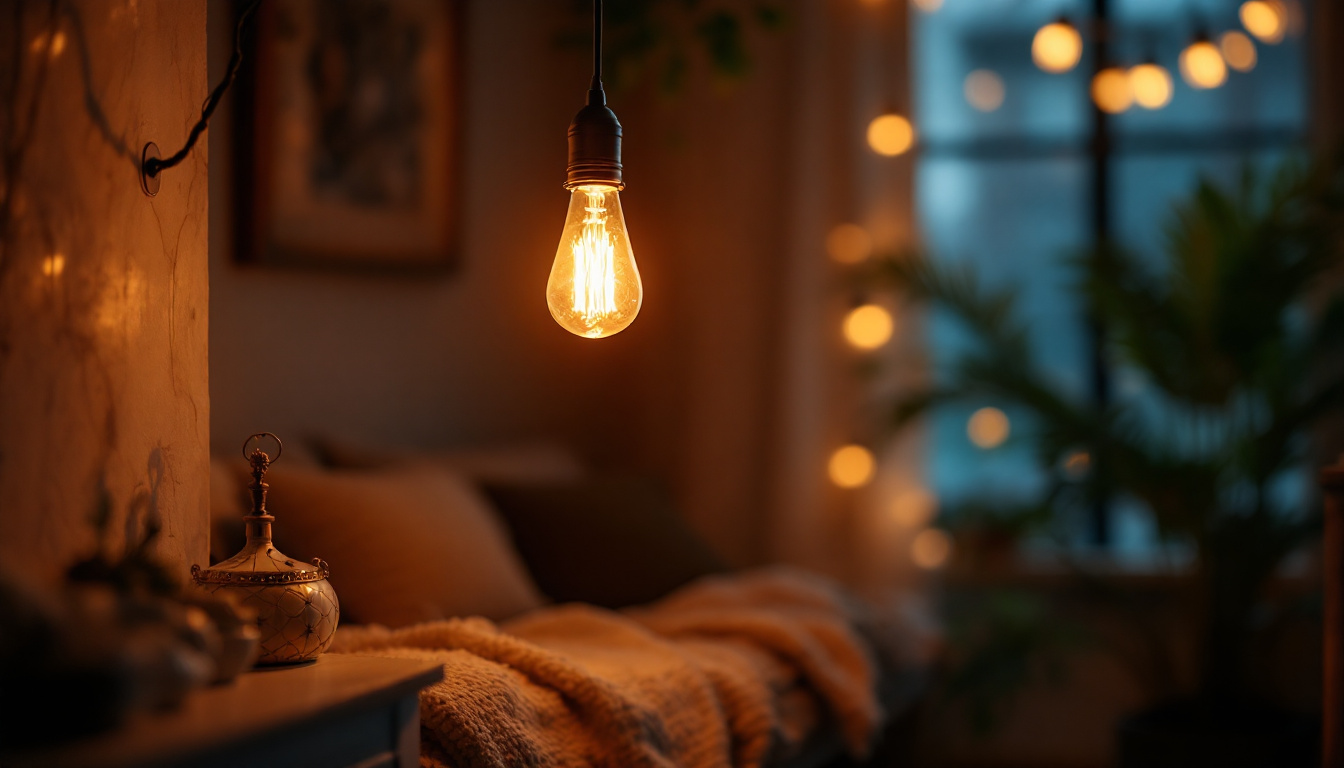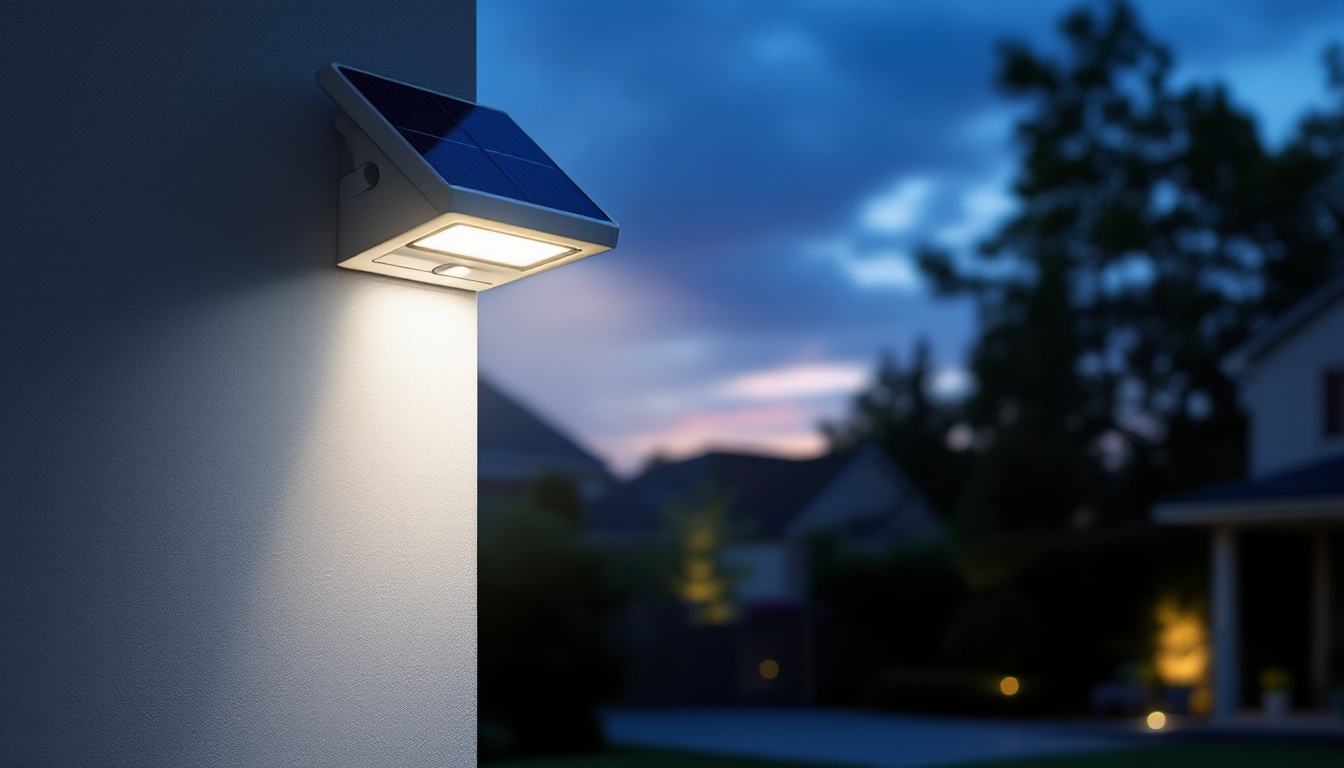
Lighting plays a pivotal role in the overall functionality and aesthetic appeal of any kitchen. For lighting contractors, understanding the nuances of kitchen ceiling lamps is essential for delivering successful projects. This article delves into the importance of these fixtures, the various types available, and how they can enhance both the contractor’s portfolio and the homeowner’s experience.
Kitchen ceiling lamps are not merely functional; they are integral to creating an inviting atmosphere. These fixtures provide essential illumination for various tasks, from cooking to entertaining. A well-lit kitchen enhances safety, improves efficiency, and elevates the overall mood of the space.
Moreover, kitchen ceiling lamps can significantly influence the design aesthetic of the room. They serve as a focal point, drawing the eye and complementing the kitchen’s decor. For lighting contractors, understanding the balance between functionality and aesthetics is crucial in meeting client expectations.
One of the primary roles of kitchen ceiling lamps is to provide adequate lighting for various tasks. A well-lit kitchen allows homeowners to prepare meals safely and efficiently, reducing the risk of accidents. Different areas of the kitchen may require different types of lighting, and ceiling lamps can be strategically placed to ensure even illumination throughout the space.
Additionally, ceiling lamps can help reduce shadows and dark corners, making the kitchen feel more open and spacious. This is particularly important in smaller kitchens, where maximizing light can create an illusion of a larger area. For contractors, understanding the specific lighting needs of each kitchen layout can enhance their reputation for quality work.
Beyond functionality, kitchen ceiling lamps contribute significantly to the kitchen’s visual appeal. The right fixture can enhance the overall design theme, whether it’s modern, rustic, or traditional. Lighting contractors should be well-versed in the various styles available, from sleek pendant lights to elaborate chandeliers, to meet diverse client preferences.
Choosing the right color temperature is also essential. Warm white light can create a cozy atmosphere, while cooler tones can lend a more contemporary feel. By offering clients a range of options, contractors can ensure that the final result aligns with their vision.
The market offers a plethora of kitchen ceiling lamps, each designed to serve specific purposes and styles. Understanding the different types available is essential for lighting contractors aiming to provide tailored solutions for their clients.
Pendant lights are a popular choice for kitchen islands and dining areas. They hang from the ceiling and provide focused lighting, making them ideal for task-oriented spaces. Available in various styles, sizes, and colors, pendant lights can be customized to fit the kitchen’s overall design.
For contractors, offering pendant lights can be a great way to add a touch of elegance and sophistication to the kitchen. They can be used in clusters or as standalone fixtures, allowing for versatility in design. Additionally, many pendant lights come with adjustable heights, making them suitable for different ceiling heights.
Flush mount lights are another excellent option for kitchens, especially in spaces with lower ceilings. These fixtures sit close to the ceiling, providing a clean and unobtrusive look. They are available in various designs, from simple and modern to ornate and traditional.
Flush mount lights are particularly beneficial in smaller kitchens, where space is at a premium. They provide ample illumination without overwhelming the room’s aesthetic. For contractors, recommending flush mount lights can ensure that clients achieve a well-lit kitchen without compromising on style.
While chandeliers are often associated with dining rooms, they can also make a stunning statement in kitchens. A well-placed chandelier can serve as a focal point, adding a touch of luxury and elegance to the space. Lighting contractors should consider the kitchen’s overall design when recommending chandeliers, ensuring that they complement the existing decor.
Chandeliers can vary in size and style, from grand, multi-tiered designs to minimalist options. This versatility allows contractors to cater to a wide range of client preferences and kitchen layouts. When installed correctly, chandeliers can transform an ordinary kitchen into a sophisticated culinary haven.
In today’s environmentally conscious world, energy efficiency is a key consideration for homeowners and contractors alike. Kitchen ceiling lamps are available in various energy-efficient options, including LED and CFL bulbs. These choices not only reduce energy consumption but also lower utility bills, making them attractive to clients.
Lighting contractors should be well-informed about the benefits of energy-efficient lighting. Educating clients on the long-term savings and environmental impact can enhance their credibility and build trust. Additionally, many energy-efficient fixtures come with stylish designs, allowing contractors to offer sustainable solutions without sacrificing aesthetics.
LED lighting has gained immense popularity in recent years due to its longevity and energy efficiency. Unlike traditional incandescent bulbs, LEDs consume significantly less energy and have a longer lifespan, making them a cost-effective choice for homeowners.
For lighting contractors, incorporating LED options into kitchen designs can be a selling point. Clients are increasingly seeking sustainable solutions, and showcasing energy-efficient fixtures can set contractors apart from the competition. Furthermore, LED lights are available in various styles and color temperatures, allowing for seamless integration into any kitchen design.
As technology continues to advance, smart lighting solutions are becoming more prevalent in modern kitchens. These systems allow homeowners to control their lighting through smartphones or voice-activated devices, offering convenience and flexibility.
For lighting contractors, understanding smart lighting technology can open up new opportunities for projects. Offering clients the option to integrate smart lighting into their kitchen designs can enhance their overall experience and satisfaction. Additionally, showcasing the benefits of smart lighting, such as energy savings and customizable settings, can further solidify a contractor’s reputation as a knowledgeable professional.
Proper installation of kitchen ceiling lamps is crucial for both functionality and safety. Lighting contractors must be well-versed in the installation process to ensure that fixtures are securely mounted and wired correctly. This not only prevents potential hazards but also ensures optimal performance of the lighting system.
Before installing any ceiling lamp, it is essential to assess the existing wiring and electrical system. Contractors should ensure that the electrical circuit can handle the load of the new fixtures and that all wiring meets local codes and regulations. This attention to detail can prevent issues down the line and enhance the contractor’s reputation for quality work.
Additionally, using proper installation techniques is vital for ensuring the longevity and performance of the fixtures. Contractors should follow manufacturer guidelines and best practices to avoid common pitfalls that can lead to malfunctioning lights or safety hazards.
The height and placement of kitchen ceiling lamps can significantly impact their effectiveness. For pendant lights, it is essential to consider the height of the kitchen island or dining table to ensure adequate illumination without obstructing sightlines. A general rule of thumb is to hang pendant lights approximately 30 to 36 inches above the surface.
Flush mount lights should be positioned strategically to maximize coverage and minimize shadows. Contractors should take into account the layout of the kitchen and the placement of cabinets and appliances to ensure even illumination throughout the space. Proper placement not only enhances functionality but also contributes to the overall aesthetic appeal of the kitchen.
Effective communication with clients is essential for lighting contractors. Educating homeowners about the different types of kitchen ceiling lamps, their benefits, and installation considerations can help them make informed decisions. This not only enhances client satisfaction but also builds trust and rapport.
Every homeowner has unique preferences and requirements when it comes to kitchen lighting. Lighting contractors should take the time to understand their clients’ needs, including their lifestyle, cooking habits, and design preferences. This personalized approach can lead to more successful projects and satisfied clients.
By actively listening to client feedback and incorporating their ideas into the design process, contractors can create a collaborative environment that fosters creativity and innovation. This not only enhances the final result but also strengthens the contractor-client relationship.
Once the kitchen ceiling lamps are installed, contractors should provide clients with maintenance tips to ensure the longevity and performance of their fixtures. This can include guidance on cleaning, bulb replacement, and troubleshooting common issues. By offering this support, contractors can demonstrate their commitment to client satisfaction even after the project is completed.
Additionally, educating clients about energy-efficient practices can further enhance their experience. Providing information on how to maximize the benefits of their new lighting can lead to long-term satisfaction and potential referrals for future projects.
Kitchen ceiling lamps are a vital component of any successful lighting project. For lighting contractors, understanding the importance, types, and installation considerations of these fixtures is essential for delivering high-quality results. By staying informed about energy-efficient options and smart lighting solutions, contractors can offer clients innovative and sustainable choices.
Effective communication and client education are key to building trust and ensuring satisfaction. By taking the time to understand client needs and providing ongoing support, lighting contractors can enhance their reputation and foster long-lasting relationships. In the competitive world of lighting design, mastering the art of kitchen ceiling lamps can be the key to success.
Ready to elevate your lighting projects to new heights of success? At LumenWholesale, we provide lighting contractors with an exceptional range of kitchen ceiling lamps and other spec-grade lighting products. Our commitment to quality and affordability ensures that you can deliver outstanding results to your clients without the burden of inflated costs. With free shipping on bulk orders, you can trust that you’re getting the best value for your investment. Don’t let middlemen markups dim your project’s potential. Choose LumenWholesale for superior lighting solutions that blend seamlessly with your design vision. Wholesale Lighting at the Best Value is just a click away.

Discover why lighting contractors still swear by incandescent bulbs despite modern alternatives.

Discover the insider tips and expert advice from lighting contractors on mastering solar flood lights with motion sensors.

Discover the common pitfalls lighting contractors face with Type T lights and learn how to avoid them.

Illuminate your outdoor spaces with confidence! Discover essential tips, styles, and installation advice for choosing the perfect outside post light to enhance your home’s curb appeal and safety..